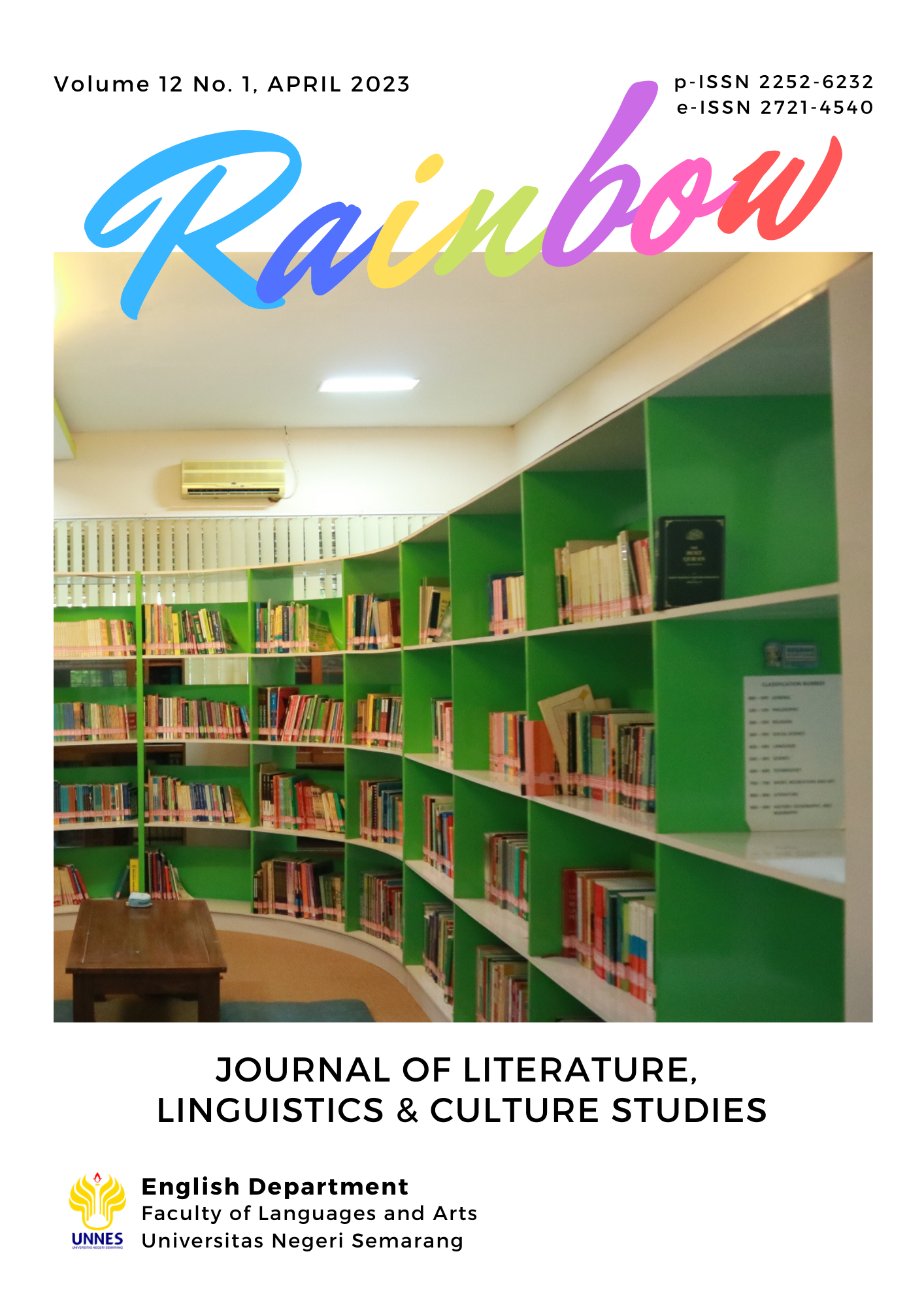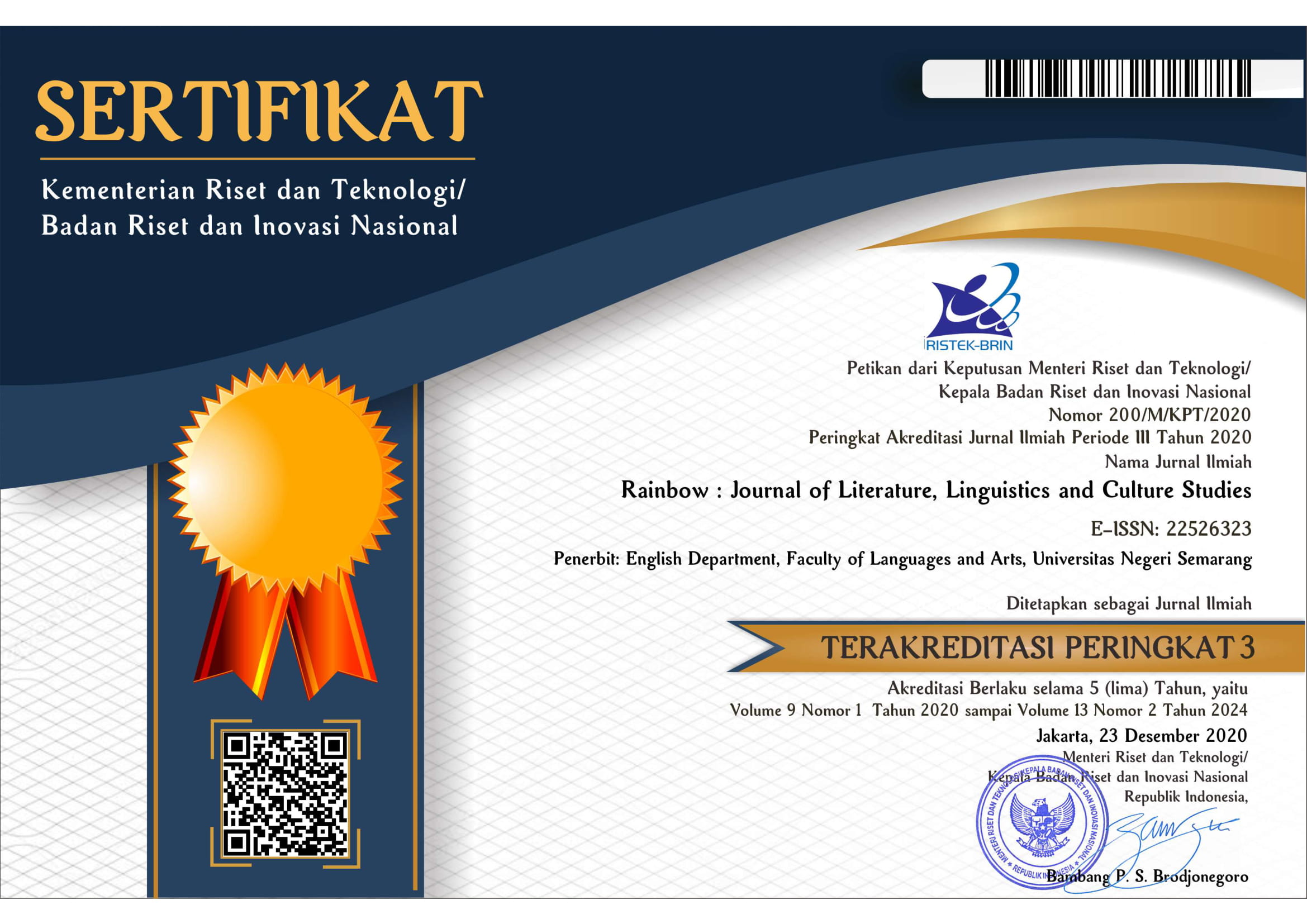Gender stereotypes in a modern Javanese nuclear family in film Mudik (2020)
Abstract
The characters of a Javanese husband and wife in films are often presented with gender stereotypes, such as Angayani (Providing for Family) for husbands and Manak (Giving and Caring for Children) for wives. This article aims to show the gender stereotypes of a husband and a wife in a modern Javanese nuclear family in film Mudik (2020) by Adriyanto Dewo. Gender stereotypes are established values that have been socialized through the concepts of Dadi Wong (Being a successful person) and Durung Tutug, Jowo, or Rampung (Being an unsuccessful person) in Javanese society. Those who successfully meet these values will be included in Dadi Wong category, but if they are not able to, they will be classified in Durung Tutug, Jowo, or Rampung category. This study uses narratology as an analytical method which is elaborated with the theory of gender performativity and power relations. The results of this study indicate that the representation of the husband in this film is considered unable to fulfill Dadi Wong conception due to the absence of children and financial instability. Meanwhile, the representation of the wife is unable to reach the qualifications of Dadi Wong due to her infertility condition and role in the public sphere.
Copyright (c) 2023 Jordy Satria Widodo

This work is licensed under a Creative Commons Attribution 4.0 International License.







